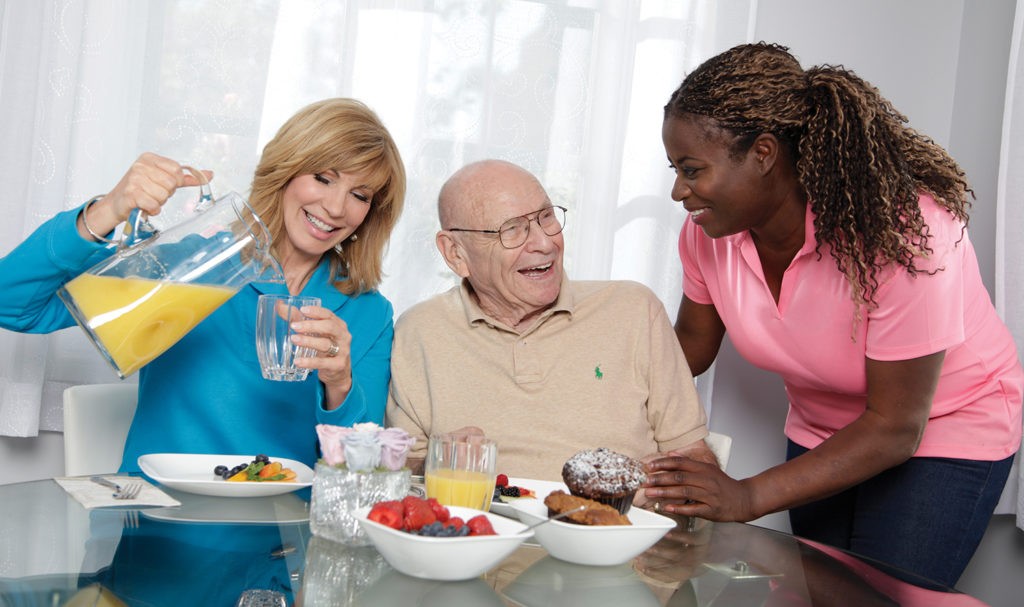Valuing the Invaluable

November is National Family Caregivers Month. When President Clinton signed the first Family Caregiver Month proclamation in 1997, the month of November was chosen arbitrarily, but something seems so right about honoring the family members, friends, and neighbors who devote themselves to providing care to another in a month where our hearts are acutely turned to a season of giving thanks. Caregivers do indeed deserve our thanks, and considerably more.

Caregivers, sometimes defined as informal caregivers, are those providing assistance in daily living activities and medical tasks to someone within the family. The number of them cited in the U.S. depends on which study you reference and the criteria used to define caregiver. According to the National Alliance for Caregiving and the AARP, there were 43.5 million caregivers in the United States in 2016. The Center for Advancing Health puts the number at 65 million and growing. The number is staggering, but even more dramatic is another number – ONE. For every caregiving arrangement, there are individual people living the life, working through the struggles, and feeling the joys. For every caregiver, there is an individual caregiving story and those stories ripple through the lives of family, friends, co-workers, and the community, refreshing and nourishing like water to a thirsty garden.

WHO ARE THE CAREGIVERS?
Most of us at some point in our lives will be in the role of caregiver, if even for a short time. Some caregivers get to grow into the role slowly as the need increases. Others are thrown headlong into the role unexpectedly, having to learn to provide care and manage the healthcare system, jobs, finances, and their own lives all at once. While the situations are as diverse as the number of them, there are some commonalities among them all. Most notably, all caregivers want to provide the best possible care to their loved one, whether that means finding new treatments and making endless calls or providing for the physical needs. Second, caregiving comes with some tough stuff that can touch us in completely unexpected ways, such as the moment a loved one no longer recognizes you, or when someone requiring long-term care resents the help and loss of independence and seemingly rejects their loved ones. If there is one quality that runs through all caregivers it is courage to face all of those hard things, knowing that it is worth it all.
THE SOCIETAL IMPACT
Family caregivers are not officially part of the healthcare system, and yet are very much part of the healthcare team. The care provided is generally around the clock, even if the person is not in the presence of that person every hour of the day and night. Family caregivers are mostly unpaid, and there are few entities that even have provisions for them. Very often, their own jobs suffer in the process.
Yet family caregivers add huge economic value to society. The value of the services provided by the family has steadily increased over the last decade, with an estimated economic value of $470 billion in 2013, according to the most recent data from the AARP Public Policy Institute. That amount exceeds the value of Medicaid spending the same year and matches the value of the sales that year for the world’s largest company, Walmart. The emerging body of evidence tells us that integrating family caregivers into the health system holds tremendous promise for the well-being of the patient while having the added value of reducing costs associated with readmission and nursing care.

SUPPORTING THOSE WHO SUPPORT
Caregivers are a critical national health care resource deserving of recognition, support, and understanding. One of the biggest problems in caregiving is that many do so alone and become isolated from their own support networks. Caregiving involves a high-level of unpredictability which can cause significant emotional strains. Understanding the struggle, communities learn to reach out and support those who support with relief and respite help and advocating legislation that can help recompense their health care efforts. Increasing emotional and financial support will inevitably have an even more positive impact on the well-being of the patients.
CAREGIVING IS COMPLEX
Saying caregiving is complex is an understatement, it’s true. But what that statement lacks magnifies the truth that those who have not provided care will never know. Providing care is always a dig-in-your-heels, multifaceted, emotional, draining, enriching experience that changes you forever. It is not all good or easy, but certainly not all bad and not without rich reward. It can rub your heart raw in a way that helps you see the world in amazing technicolor – if you let it – or sink your ship if you do not keep watch.
Though wrought with challenge, caregiving represents all that is right with healthcare. We at Healthy Kansas City magazine hope to be a support to all those who provide care on any level, within the healthcare system as well as those who are part of the greater healthcare team. It is with deep gratitude that we thank you all.






